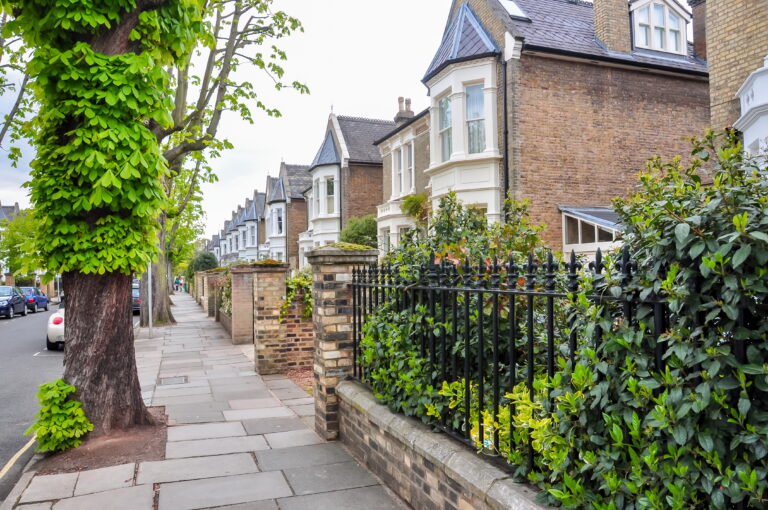Making money from property isn’t just for large-scale developers and landowners. If you have money to invest and want to see a significant return on it, then the property market could be for you. Investing in property is considered to be relatively low-risk, but there are many factors to consider if you’re going to make a real profit from it. Ensure you’ve got everything covered by reading our guide below.
Ways to make money from property
The two main ways to make money from the property are to sell it or to let it out.
Buying a rental property is considered a safe investment and people like the fact that lettings provide a regular income. However, if you want quick results, it’s worth investigating how to make money flipping houses. It’s a great alternative to becoming a landlord because it’s a comparatively short-term project that will generate your profits in one lump sum.
Read our advice about both options to see what feels right for you.
How to make a profit selling property
1. Choose the right property to buy
Making money from property means that you have to invest in the right property to start with. Do your research so that you’re sure the property you invest in has enough potential to make a decent profit when you sell it.
Consider the property’s location and whether it’s a desirable place to live. Are there good schools in the area, for example? Make sure there are useful local shops and amenities, as well as good transport links for commuters.
When considering your budget, make sure you factor in all the costs involved with buying a property, which includes:
- A deposit
This is currently a minimum of 5% of the property price (though it’s higher for buy-to-let properties)
- Valuation costs
Usually, your mortgage lender will value the property for a cost between £150 and £1,500. However, you can get your property valued for free with Hunters
- Stamp Duty
- Mortgage arrangement fees
- Survey costs
- Solicitor fees
If you’re buying a property to do up, then look at similar properties in the area to see what they’re selling for. This will help you work out whether you’ll make enough profit from the property after the costs of refurbishment.
2. Flipping houses
Flipping means buying a home that needs extensive work on it, completing the work, and then selling the property for a profit. When it’s done right, flipping a house is a great way to make a profit relatively quickly.
The key to success is to buy a property for the lowest price possible and to sell it for the highest price so that you maximise your profits. However, it can be risky if you choose the wrong property, or if you don’t have enough capital to complete the renovations.
Whilst you’ll get a big lump sum after selling, don’t underestimate how long the process can take. Buying the property, finding contractors, completing the work, and then selling the property, can take a long time. On top of that, there could be unforeseen delays at any stage, so make sure you have a buffer of extra time and money available, just in case.
3. Work out the true costs of renovation
Every project is unique, but when choosing which house to buy, make sure you know how big a project you’re taking on.
Costs to consider when budgeting for renovation include:
- Wiring, heating system, gas supply, water supply and plumbing
- Architect’s plans, planning permission, building control sign off
- Contractors to complete the work
- New bathroom(s) and kitchen
- Decoration (plastering, painting, carpets etc.)
Make a full list of the work involved and write up a detailed budget to make sure that you can cover all the costs. Add on 10-15% contingency costs to cover unexpected issues during the project.
4. Appreciation
If you’re looking at how to make money from property in the easiest way possible, this is it. Appreciation is the increase of your property’s value over time; all you need to do is wait.
When you buy a property in a sought after location, with good amenities, schools and travel links, the likelihood is that its value will continue to rise and you’ll make a decent profit when you sell it.
Completing some home improvements will also add value to your property and give you the best chance of making money when selling your home.
5. Selling your property
When you’re ready to put your property up for sale, you’ll need to find a good, trusted estate agent. A professional agent should show you examples of similar properties they’ve sold in the area, and how much they’ve sold them for. They should also explain their estate agent fees, which will either be a percentage of the selling price, or a set rate.
Add the estate agent’s fees to your budget, alongside other selling costs, including mortgage (or early repayment) costs, conveyancing fees, legal fees, Energy Performance Certificate (EPC) costs, and moving costs.
How to make money with rental properties
6. Renting out your property
Becoming a landlord is one of the safest ways to make money from property. If you have the capital to invest, it offers you much more in the way of profits than simply saving the money or putting it in other, less predictable investments. Buy-to-let actually offers you two types of profit; appreciation, and rental income.
7. Buy the right rental property
When thinking about how to make money with rental properties, location is key; you need to know that you’ll have enough potential tenants to choose from. University areas are always reliable, as are city centres, and any location that has good schools, amenities, transport links etc.
To make the most profit, buy a run-down property and renovate it before letting it out. This will maximise your profit when it comes to selling the property. However, the extra time and costs associated with this might be off-putting for some landlords.
Another option is to buy a large property and split it into flats or create a House in Multiple Occupation (HMO). Either of these options would provide multiple sources of rental income, but again, there would be significant renovation costs.
8. Prepare your rental property for tenants
When turning a house or flat into a rental property there are several costs involved, and it’s important to factor these in before you go ahead.
The costs include:
- Landlord insurance
- Legal & admin fees
- Deposit Protection Scheme registration
- Gas safety certificate
- Fire and electrical safety checks
- Smoke and carbon monoxide detectors
- Energy Performance Certificate (EPC)
- Property maintenance
- Letting agents fees
Your letting agent fees will vary depending on how much support you need, and how hands-on you want to be as a landlord. At Hunters, if you choose a tenant find only service we’ll advertise your property, find and vet your tenants, set up your tenancy agreements, collect the deposit and the first month’s rent, and more besides. Add on a rent collection service, or go up to a fully managed let and we’ll take care of everything on your behalf.
The best thing about using a letting agent is that you can be sure that you’ve covered all the legal issues, you’ve got the right insurance, and all the right safety checks are in place.
9. Maintain your property
Once you’re up and running, there’ll be ongoing costs to cover, such as annual safety checks of gas and electric appliances. Other costs include insurance cover, mortgage payments, the decoration of the property, cleaning between tenancies and general maintenance.
Maintenance costs can be varied and they’re difficult to plan for because you don’t know what will come up – appliances might need fixing or replacing at any given time, or there could be heating and plumbing issues etc.
10. Profits from rental income
The whole reason people become landlords is to make a profit, but what’s the best way to use that money?
First, be aware that you’ll have to pay tax on your rental income. However, this only applies to the profits you make (rental income, minus expenses) and not the whole amount. Register with HMRC and file a return every tax year; this will be much easier if you keep a clear record of your accounts and all of your receipts/invoices. If you have a large portfolio of properties, it could be worth setting up a limited company, so get some advice from an accountant about this.
After-tax, your profits will have to cover your mortgage payments on the property, as well as the ongoing monthly/annual property costs and maintenance. It’s also worth keeping a percentage of your profits as contingency to cover any unexpected costs that come up, such as replacing the boiler, or gaps between tenancies.
If you save your remaining profits, you could reinvest in new properties and build your portfolio, or pay the full mortgage on your current rental property early.
If you haven’t already invested in a letting agent to manage your property it could be a good time to do that. This will save you a lot of time and money in the long run as they have the skills and knowledge to react to issues as they occur and to keep your property ticking over for you.
It’s very tempting to blast your profits on expensive items or holidays straight away, however, if you reinvest it in your property, or expand your portfolio, you’ll have much more profit to play with down the line.
11. Is it worth buying a house to rent out?
The truth is that landlords incur a lot of costs, and these can vary year to year depending on the circumstances. However, there are profits to be made and as you gain more experience, being a landlord becomes much easier.
Letting agents are there to take the heavy workload off your hands and to make sure that you’re covered financially as well as legally. If you’re inexperienced or have little time to invest as a landlord, then get the support you need from an experienced agent.
When looking at how to make money from property, there’s no quick or easy route to follow. However, there are many opportunities to grasp, whether you want to make money with rental properties or by flipping houses.
If you’re considering selling or letting your property, find out how much it’s worth in today’s market. Get started with our free property valuation now.




